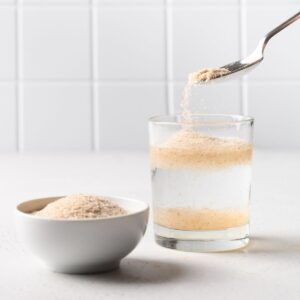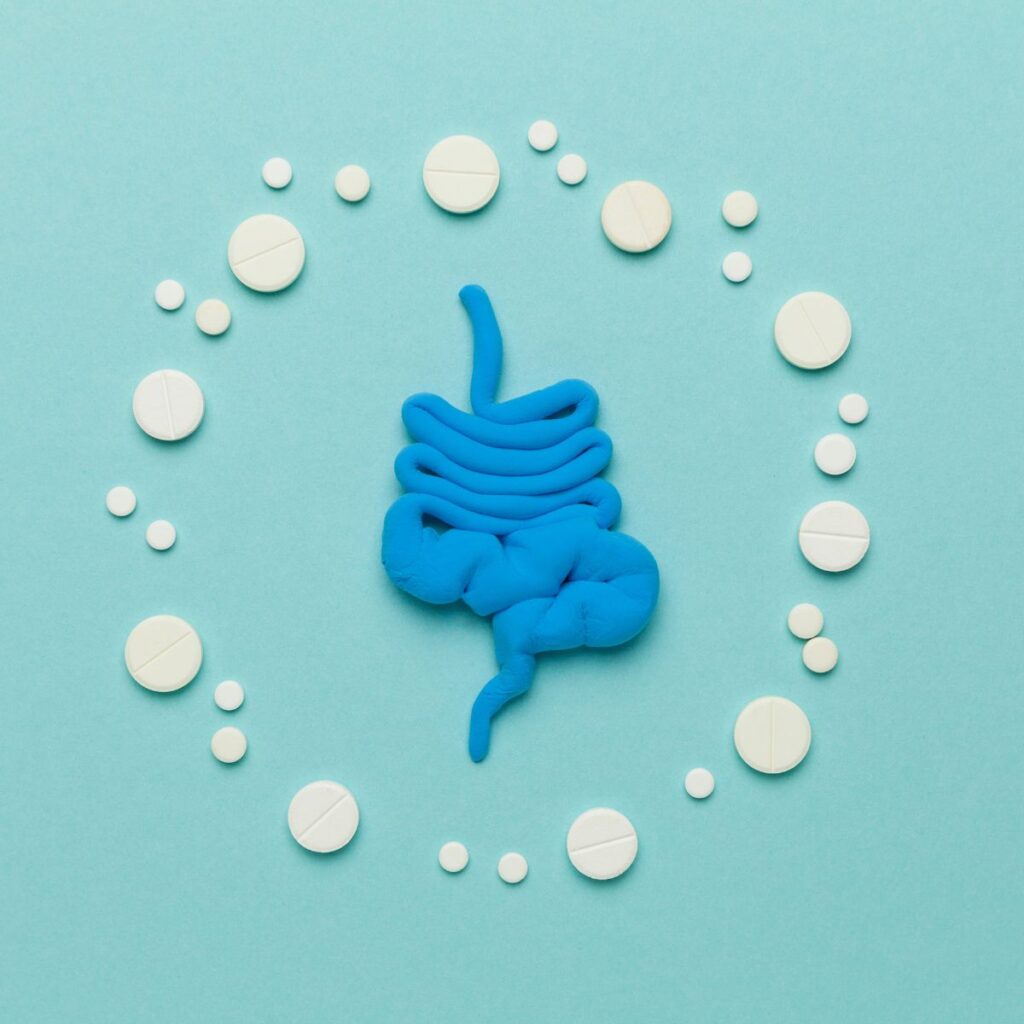Blog
Relieve Constipation Immediately with Natural Remedies
Constipation is a common digestive issue affecting millions worldwide. It occurs when bowel movements become infrequent or difficult to pass. If you’re not having a daily bowel movement, you may already be experiencing constipation. In severe cases, some people go to the toilet only once or twice a week—or even once every two weeks—leading to chronic constipation. This condition can cause bloating, discomfort, and, if left untreated, may contribute to more serious health problems. While occasional constipation is normal, chronic constipation can significantly impact daily life, leading to fatigue, anxiety, and even hormonal imbalances like estrogen dominance.
Understanding the root causes of constipation and adopting natural methods for relief can help improve digestive health. This article explores the main causes of constipation and provides effective natural treatments, including lifestyle changes, supplements, and herbal remedies to promote regular bowel movements.
Main Root Causes of Constipation
- Deficiency in Stomach Acid and Digestive Enzymes

-
- Low levels of stomach acid (hydrochloric acid) impair digestion and slow down bowel movements.
- Failing to give the digestive system a break prevents it from properly producing digestive enzymes, which are essential for breaking down food efficiently. This can result in symptoms such as undigested food particles in the stool, excessive burping, bloating, and cramps, all of which contribute to constipation. A lack of digestive enzymes disrupts digestion, leading to discomfort and sluggishbowel movements.
- Poor chewing habits reduce enzyme secretion and worsen digestion.
- Unhealthy Dietary Habits
- Excessive consumption of processed foods, refined sugars, and simple carbohydrates slows digestion.
- Consuming large amounts of unhealthy fats, such as vegetable oils (sunflower, corn, and canola), instead of natural, nutrient-rich fats like olive oil, coconut oil, ghee, grass-fed butter, or avocado oil, can contribute to constipation. These processed oils can disrupt digestion and slow bowel movements, whereas natural fats support gut health and promote smoother digestion.
- Eating large meals without spacing them properly burdens the digestive system and delays bowel movements.
- Dehydration and Electrolyte Imbalance
- Not drinking enough water causes stools to become hard and difficult to pass.
- Excessive caffeine intake (tea, coffee) leads to dehydration and worsens constipation.
- Lack of electrolytes like magnesium and potassium reduces digestive motility.
- Sedentary Lifestyle and Lack of Movement
- Sitting for long hours reduces blood circulation to the colon and slows bowel movements.
- A lack of physical activity weakens intestinal muscles, leading to constipation.
- Gut Dysbiosis and Poor Microbiome Health
- An imbalance of gut bacteria (SIBO, IBS) can lead to irregular bowel movements.
Natural Treatments for Constipation
1. Lifestyle Tips for Treating Constipation Naturally

-
- Hydration is Key: Drink 1.5–2 liters of water daily to soften stools and ease passage.
- Follow a Morning Routine: Start your day with two cups of lukewarm water, followed by a green juice with wheatgrass or spirulina; they are rich in chlorophyll, help to alkalize the gut, and aid digestion.
-
The Importance of Fiber for Digestion and Constipation Relief:
Dietary fiber is an essential component of plant-based foods, including whole grains, nuts, seeds, fruits, and vegetables. It is classified into two main types—soluble fiber and insoluble fiber—both of which play a crucial role in digestion, bowel movements, and overall gut health.
- Soluble fiber: dissolves in water, forming a gel-like substance that softens stool and increases stool frequency. Good sources include oats, beans, citrus fruits, avocado, barley, and psyllium husk.
- Insoluble Fiber: Does not dissolve in water and passes through the digestive system intact, adding bulk to stool and stimulating bowel movement. It is particularly effective in preventing constipation and tends to produce less gas than soluble fiber. Good sources include wheat bran, nuts, dark leafy greens (such as spinach), vegetables, and dried fruits.
- Dried plums (prunes): A mix of soluble and insoluble fiber, shown to be more effective than psyllium in improving bowel movement.
Gradually increasing fiber intake, along with proper hydration, helps prevent bloating and gas while ensuring optimal gut health and regularity.
- Chew food properly: Proper chewing stimulates digestive enzymes and eases digestion.
- Avoid processed foods: reduce refined sugars and artificial ingredients that disrupt gut health.
- Move Your Body: Take short walks every hour or perform abdominal massages to stimulate bowel movement.
- Establish a Bathroom Routine: Always go to the toilet when you feel the urge; delaying can worsen constipation.
- Eat Dinner Early: Aim to finish your last meal by 7-8 PM for optimal digestion overnight.
2. Supplements Needed for Supporting Bowel Movements
- Magnesium Citramate (400-500 mg before bed): Acts as a mild laxative and relaxes intestinal muscles.
- Probiotics (30-50 billion CFU for 1 month): A quality probiotic should include diverse strains of Lactobacillus, such as L. reuteri, L. rhamnosus, and L. crispatus, to support gut balance, relieve constipation and diarrhea, and promote long-term digestive health.
- Digestive Enzymes (for 2 weeks): supports digestion, especially for those with enzyme deficiencies.
3. Natural Herbal Treatments for Constipation
If you haven’t had a bowel movement for more than three days, avoid relying on laxatives, as long-term use can worsen the issue. Instead, opt for natural herbal remedies that support bowel movements and promote digestive health.
- Chamomile, Anise, or Ginger Tea: Consuming these herbal teas 1-2 hours before breakfast soothes digestion and relieves bloating.
- Licorice Root Tea: A gentle natural laxative that soothes the digestive tract.
- Chia Water: Soak 1-2 tablespoons of chia seeds in water at least 30 minutes before consuming.
- Psyllium Husk & Triphala Powder: Natural fiber sources that promote regular bowel movements.

Side note: about triphala powder: limit taking this herb to only 1-3 times a month only.
- Senna Tea (Short-Term Use Only): Effective for severe constipation but should not be used for more than a week to prevent dependency.
Foods to Avoid When Constipated
- Processed and fried foods (fast food, chips, frozen meals)
- Dairy products (for those with lactose intolerance)
- White bread, refined grains, and pastries
- Sugary drinks and sodas
- Excess caffeine (more than 2 cups of coffee per day)
Immediate Constipation Relief at Home: Quick Solutions
If you need an instant remedy for constipation, try these quick fixes:
- Drink warm water with lemon juice first thing in the morning.
- Consume 2 tablespoons of olive oil with pineapple or papaya before bed.

- Take flaxseeds (1 tbsp ground) with yogurt or smoothies.
- Try miso rice paste in meals for probiotic support.
- Homemade instant constipation relief recipe: mix a chopped orange (with the white part), 1 tsp. cinnamon, 1 tbsp. apple cider vinegar, and 1 tbsp. virgin olive oil, then eat them together.
If you’ve tried all the recommended solutions and still struggle with constipation, addressing mitochondrial health is key to achieving long-term relief. Mitochondria, the body’s energy producers, play a vital role in maintaining healthy bowel function. To support them, consider taking the Neurochondria supplement for three months to enhance energy production in the digestive system and promote regularity.
Conclusion
If you need to stop using laxatives, gradually taper off over one to two weeks to prevent severe colon sluggishness and rebound constipation. Constipation can affect overall health, but relief is possible with the right lifestyle, diet, and natural remedies. Prioritize hydration, fiber-rich meals, regular movement, and targeted supplements to maintain bowel regularity. By making these adjustments, you can prevent chronic constipation and support long-term gut health.
If you need more details about a personalized, tailored full SIBO/IBS gut healing protocol, follow the link below and subscribe:
If you need more details and information about constipation and its natural treatments, follow the link below to watch the full episode on Dr. Fajer Aljumairi’s YouTube channel:

